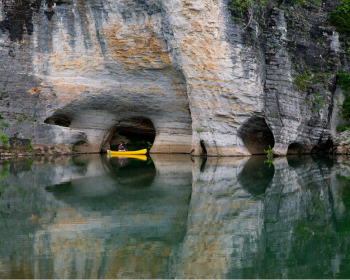Earthrise Acts to Protect Critical Wetland Habitat in San Francisco Bay
Open gallery

At the end of September, Earthrise, on behalf of our client San Francisco Baykeeper, filed a lawsuit challenging the Trump Administration’s arbitrary decision that Cargill’s Redwood City Salt Ponds are not subject to the Clean Water Act’s protections. San Francisco Bay and its thousands of acres of wetlands are a critical ecological resource and a safeguard against rising sea levels—but only if they are protected from development. We’ve taken the Trump Environmental Protection Agency (EPA) to court again because its decision refusing to extend Clean Water Act protections to this ecologically significant resource sets a dangerous precedent for the health of the Bay, as well as for Clean Water Act protections across the country.
Before the pink and red commercial salt ponds that exist today, the San Francisco Bay’s coastline was scattered with hundreds of thousands of acres of natural salt marshes. Along with neighboring mudflats and wetlands, these salt marshes provided important habitat for species and performed other important ecosystem services such as pollution filtration and protection from storm surges. Now, due to extensive shoreline development, just ten percent of these natural salt marshes remain.
The salt ponds at issue in our case, and water contained therein, have a significant impact on numerous species of wildlife living in or near the San Francisco Bay. Invertebrates, birds, and mammals use the salt ponds for resting, breeding, nesting and feeding. These organisms are part of the food web that extends beyond the salt pond boundaries because they are mobile and exchange carbon, nutrients, and other resources within the San Francisco Bay ecosystem. Further, birds and other animals that feed on organisms at the base of the pond food web export nutrients to other parts of San Francisco Bay waters.
The open waters of the salt ponds also transform and sequester nutrients and chemical contaminants that could adversely impact water quality in the San Francisco Bay. Therefore, other organisms living in the San Francisco Bay waters are directly impacted by the organisms that use the salt ponds.
In November 2016, EPA Region 9 provided a detailed draft “jurisdictional determination” recommending EPA find the majority of the salt ponds and surrounding area constitute waters of the United States, and therefore are subject to the Clean Water Act’s protections. Region 9’s findings concluded: (1) the tidal channels within the salt ponds were part of the traditionally navigable waters of the San Francisco Bay; (2) the salt ponds are navigable currently and can be used in interstate or foreign commerce; (3) the salt ponds are impoundments of water otherwise defined as “waters of the United States;” and (4) the salt ponds have a significant nexus to the traditionally navigable waters of the San Francisco Bay.
This affirmative jurisdictional determination from EPA Region 9 was not finalized, however. With the change in administrations in 2017, EPA Headquarters radically changed course. In 2019, EPA Headquarters ignored EPA Region 9’s draft determination and issued a negative jurisdictional determination for the site, finding the entire property to be “non-jurisdictional fast land.” In other words, EPA decided that the waters at issue are not waters at all.
This final decision conflicts not only with EPA Region 9’s detailed analysis and conclusion that the site consists of jurisdictional waters, but also with the applicable facts and law. This is the Trump Administration carrying out yet another cut-back on essential environmental protections, preventing the salt ponds from being properly protected and restored as a valuable environmental and natural resource. To see more details about the salt ponds and the legal basis for our suit, check out our complaint here.
In addition to representing San Francisco Baykeeper, we are pleased to be working with our partners Cotchett, Pitre & McCarthy, LLP, Save The Bay (San Francisco), Committee for Green Foothills, and Citizens’ Committee to Complete the Refuge on this important litigation. Read all of the groups’ press release here.
Earthrise Law Center is located in Wood Hall on the Law Campus.
MSC: 51
email earthrise@lclark.edu
voice (503) 768-6736
fax (503) 768-6642
Allison LaPlante
Earthrise Law Center
Lewis & Clark Law School
10101 S. Terwilliger Boulevard MSC 51
Portland OR 97219

